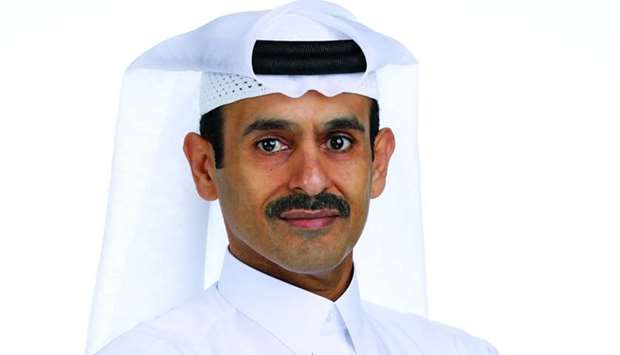Qatar is “full steam ahead” with the North Field Expansion and will be “awarding all our contracts for the NF expansion projects”, said HE the Minister of State for Energy Affairs Saad Sherida al-Kaabi.
“We have two phases in relation to the North Field Expansion — the East and South expansion. We are going to go from 77mn tonnes per year to 110mn tpy by 2025 and then up to 126mn tpy by 2027,” al-Kaabi said in a recent interview with CNBC TV.
Minister al-Kaabi noted, “Qatar is also developing our reserves in the most efficient way possible, keeping in mind safety, reliability and efficiency. We are a very efficient operator. We are talked about as the cheapest cost producer. This is because of the efficiency in which we run our business.”
Asked whether Qatar was contemplating cutting LNG production, the minister said, “Qatar will never stop production to control the market or cater to the price decline.
“In Qatar, we have looked at being more efficient. Because of the circumstances we are in due to lower oil prices, we had to look at even more efficiencies in different areas.
“So, we have cut costs around the entire oil and gas industry in Qatar… we have come down by about 30%. That has been sufficient for us. Cutting spending will not affect our current production or expansion plans,” he said.
Recently, Qatar signed a deal worth around $20bn with South Korean shipbuilders to help cement its position as the world’s largest producer of liquefied natural gas.
“We have secured approximately 60% of the global LNG shipbuilding capacity through 2027,” al-Kaabi told CNBC TV.
On future LNG prices, he said, “It is difficult to predict.
“Hopefully, the demand should pick up slowly with people coming out of quarantines all over the world, the lockdowns and especially the movement of transportation in general, mass transportation, airlines taking off again and so on.”
But the possibility of a second wave of coronavirus will continue to weigh on the energy outlook, including liquid natural gas prices. Scientists and health professionals have warned of a second wave of infections, which could slow the recovery to pre-pandemic levels, al-Kaabi told CNBC TV.
“We may be more prepared for it and have less lockdowns around the world. If that’s the case, then we’ll see a much quicker recovery, maybe in six months to a year. If there is a second wave, then it could take a little bit longer,” he said.
Al-Kaabi added, however, that he isn’t worried about the long term because it has largely been “short-term events that have affected” prices.
Still, he warned the coronavirus could have “some long-lasting effects” on travel and means of doing business.
“I think you’ll see less people doing business by traveling and more using video conferencing and other means that we got used to now and working from home and so on. So, I think there will be some change in our attitude about whether it’s business travelling or working from home,” al-Kaabi said.
In his interview with CNBC’s Hadley Gamble from Doha, al-Kaabi also shared his thoughts on some of the major oil producers’ market moves in recent months, shedding disapproval on the March decision by Saudi Arabia and Russia to launch into a price war, which sent oil prices into free fall.
“I think it was a very big mistake,” al-Kaabi said.


